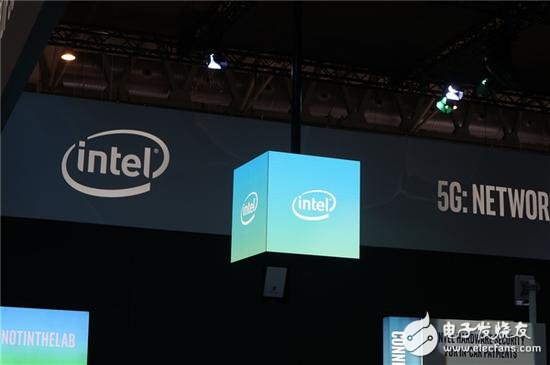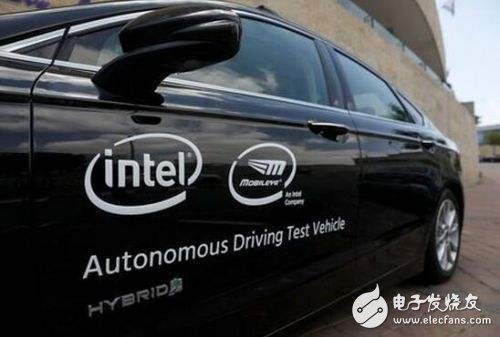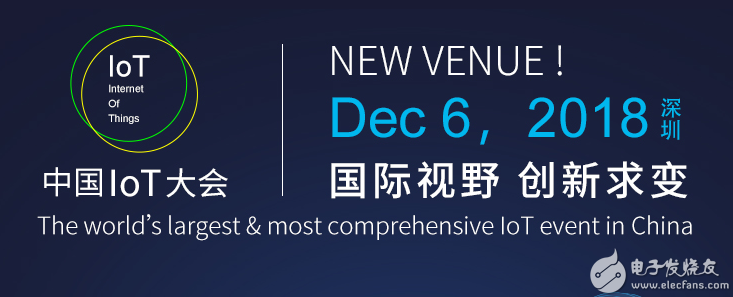[Guide]: Intel's acquisition of Israel's autonomous driving technology research and development company Mobileye is a smart move. Recently, Mobileye has won a big order and will provide auto-driving technology for 8 million cars. After that, Intel can live well without relying on the processor.

Mobileye has won a big contract and will provide autopilot technology for 8 million cars. This is also a joy for Intel. This is one of the biggest deals for Mobileye so far. With Intel, this big backer opens. The market seems to have become simpler too.
How to automate the introduction of autonomous driving functions for automakers and suppliers, and how to generate revenue to indicate when autopilot technology is still far from the mass market deployment.
Erez Dagan, senior vice president of advanced development strategy at Mobileye, said the deal will begin in 2021 when Intel's EyeQ5 chip has been released and is designed for full autopilot.
Intel and Mobileye are competing with several competitors' chip and machine vision system manufacturers, including NVIDIA. These chips and systems will provide brains and eyes for self-driving cars.
Future autopilot systems will be available on a variety of vehicle manufacturers' models, which will be partially automated, ie the car is self-driving, but the driver must remain vigilant.
Last year, Intel acquired Mobileye for $15.3 billion. According to Mobileye, there are 25 automakers around the world with about 27 million cars using some kind of driver assistance system, and Mobileye has a market share of over 70%.
Mobileye CEO Amnon Shashua said: "By the end of 2019, we expect about 100,000 Level 3 cars to be equipped with Mobileye's driver assistance system."
At Level 3, the car supports automatic driving, but if the system can't continue driving, the driver must take over the car in about 10 seconds.
Mobileye is working with a number of automakers such as General Motors (Super Cruise), Nissan, Audi, BMW, Honda, Fiat-Chrysler and China's Weilai, which will offer its Level 3 technology by next year.
Mobileye also tests the more advanced Level 4 technology at its Jerusalem headquarters, which uses the Ford Fusion Hybrid, with 12 small cameras and four upcoming EyeQ4 chips. In one test, these cars were able to drive on the highways of Jerusalem without the intervention of drivers.
Self-driving taxi
Mobileye said that although the company's Level 4 system will begin production in 2021, many of its technologies are related to the creation of systems, and consumers may soon be rushing to pay.
Shashua said that according to the automaker's promise, self-driving taxis - known as "robot taxis" - should start on the road around 2021.
“When designing the system, we take into account what we use today, after a year or two, and then a robotic taxi,†Shashua said.
He pointed out that by that time, some of the more expensive luxury cars were available for personal use, and there might be some mid-priced cars using the same technology, so the extra cost per car was about $12,000.
Shashua said, therefore, in the next few years, the road will be composed of human drivers and autonomous vehicles, which is why safety is the most important point. He added that 40,000 people die in traffic accidents every year in the United States. Although there may be only about 40 people involved in self-driving cars, society is still unacceptable.
Therefore, Shashua said that autonomous vehicles cannot rely solely on cameras. To prevent accidents, the system needs to make the best driving decisions. It needs to process data from cameras, high-definition maps, radars, and laser scanners.
Shashua said that the test vehicles were designed to drive like humans, and in Jerusalem they were decisive because the "driving culture was very decisive."
He said: "On the one hand, you want to be safe, on the other hand, you must be decisive." He pointed out that too hesitant will cause other drivers to lose patience and lead to accidents. “In the future, the system will observe other drivers on the road and adapt to the driving environment after a certain amount of time...â€
One of the problems in designing a self-driving car is how to define a dangerous situation. “When it comes to traffic rules, they are comprehensive, but they are not formally defined,†Shashua said. “It may eventually be resolved by the court. We hope to formalize these things in advance and prevent the machine from entering dangerous situations.â€
For those who are responsible for this problem, there is still no clear legal provisions to limit this problem. However, before autopilot wants to be popular, it must be safe and cannot be safe. Then drone is a false proposition. It is difficult to accept, after all, people can accept their own mistakes, but can not accept their own machine mistakes.
Electronic enthusiasts will hold the China Internet of Things Conference in Shenzhen on December 6, 2018. Please pay attention to the electronics engineers concerned with the Internet of Things, smart cars, smart cities, smart agriculture, smart homes, NB-IoT and other hotspots. Our assembly. You can click to go to the details.

The China IoT Conference was held by Huaqiang Jufeng's Million Electronics Engineer Platform Electronic Enthusiasts Network. The conference has been successfully held for 4 sessions. In the form of “Grand Forum + Sub-Forumâ€, 100+ global famous manufacturers have been gathered to successfully attract 6,000+. The names of electronic semiconductor practitioners signed up for the event, affecting 200,000+ electronic engineers.
We are committed to guiding China's IoT wind vane, gathering global IoT industry leaders, analyzing the potential market value of various industries, exposing the latest technology solutions, providing the best communication platform, and striving to build an IoT ecosystem with many partners.
Time: December 6-7, 2018
Location: Shenzhen, China
Expected size: 2,000+
12.8V200Ah Lithium Iron Phosphate Battery
Highlights
Saintish lithium iron batteries use top quality cells, which are auto grade A LiFePO4 cells with higher energy density, more stable performance . UL approved for the cells inside the battery.The lithium-ion batteries are perfect for solar system, caravan, RVs, campers, Yacht, off-grid applications and lead aicd replacement.
Saintish Lithium Iron Phosphate Battery provides 3000+ cycles (@100%DoD) and 10 years lifespan. which is 10 times than lead-acid battery. 1/3 of the weight of lead acid, the LiFePO4 Battery weighs only 23.9kgs each pc, but delivers twice power.
Saintish lithium iron phosphate battery has built-in BMS to protect it from overcharge, over-discharge, over current, and short circuit with excellent self-discharge rate. Operating Temperature: Charge: 0°C~45°C; Discharge: -20°C~60°C.
SPECIFICATIONS
| Rated Capacity | 200Ah | Charge Temperature | 0-45℃ |
| Nominal Voltage | 12.8V | Connection Method | Parallel & Series |
| Energy | 2560Wh | Dimensions | 522*240*218mm |
| Cycle Life | >3000@100% DOD | Weight | 23.9KG |
| Maximum Charging Current | 50A | Terminal Torque | 12-15N.m |
| Maximum Continuous Discharging Current | 100A | Enclosure Protection | IP65 |
| Discharging Voltage Range | 8.4-15.2V | Max. Batteries in Series | 4 |
| Charging Voltage Range | 14.4-15.2V | Certifications | CE, UN38.3, MSDS |
| Discharge Temperature | -20-60℃ | Warranty | 5 Years |
LiFePO4 Battery 200Ah, 200Ah Deep Cycle Battery, 200Ah Battery,Li Ion Battery
Hangzhou Saintish Technology Co.,Ltd. , https://www.saintishtech.com